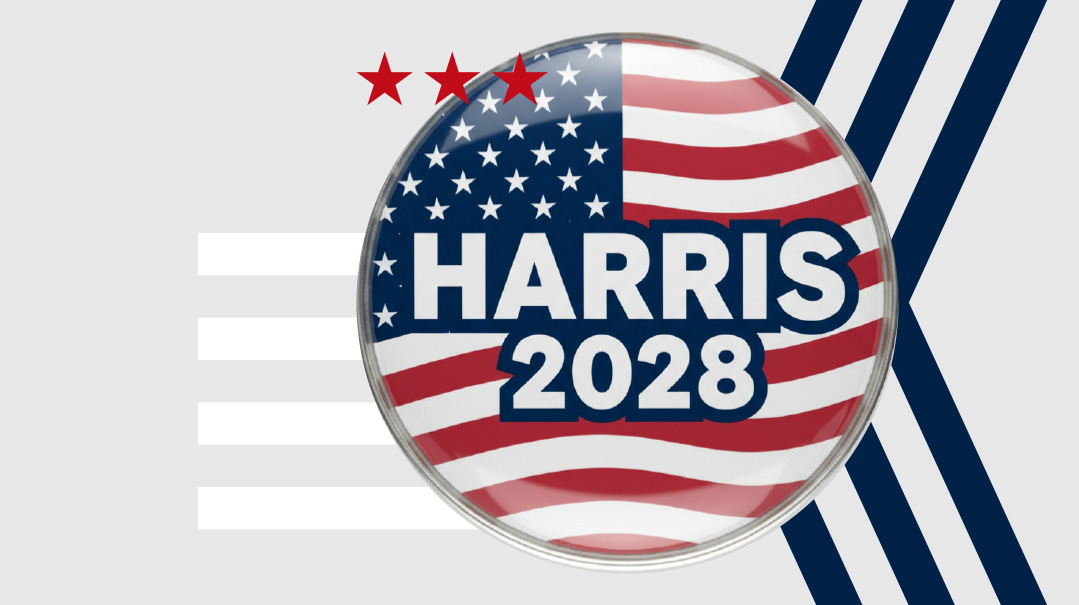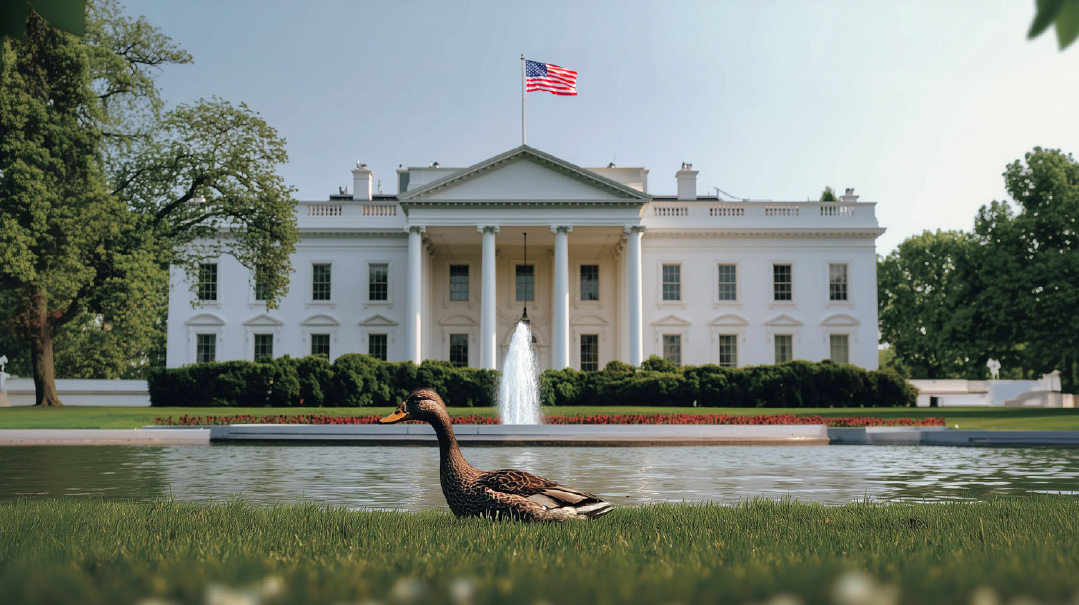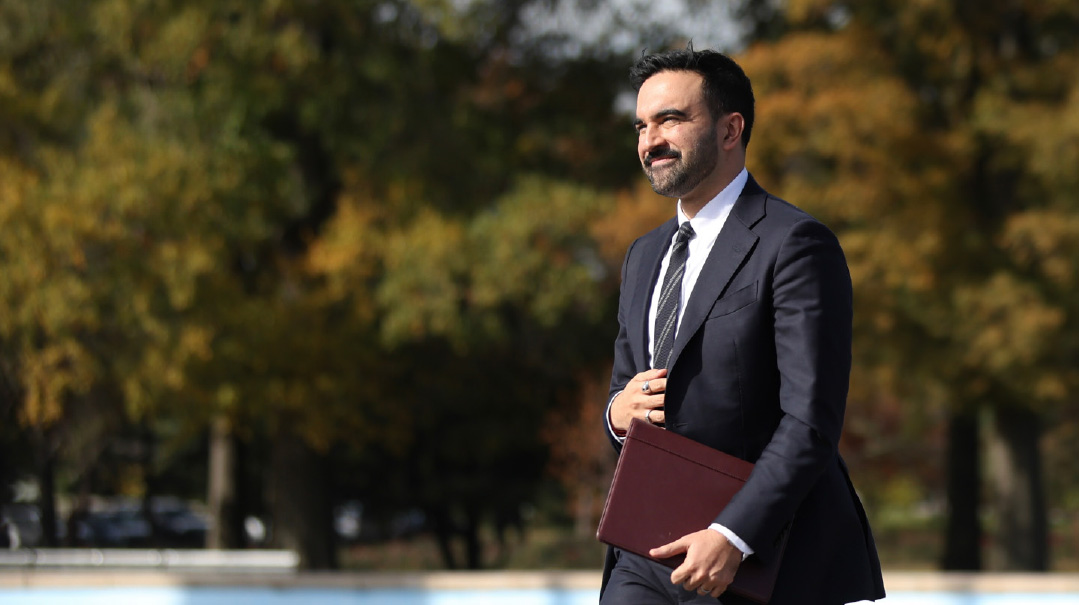Dems in the Wilderness

Democratic efforts so far to grab back the attention with dramatic optics have failed miserably

W
inston Churchill would call his time out of power his “wilderness years.” During this period, Churchill stayed in the public eye by challenging those in power and calling out their mistakes and indecision.
Right now the Democratic Party is suffering its own version of the “wilderness years,” having lost control of the White House, Senate, and House of Representatives. I wouldn’t go so far as to say that there’s a Democratic power broker with Churchill’s profile, pulpit, or personality, but there is positioning going on within the party. Piecing that together can give us a profile of an emerging opposition, and perhaps a path to victory.
Defining the opposition: Churchill’s target was fellow Conservative Neville Chamberlain who looked feckless and powerless in appeasing the Germans in the leadup to World War II. President Trump presents a much tougher target. He has learned from his first term and is not giving the opposition any opportunity to focus an attack on him. Trump issues new executive orders daily, fires numerous federal officials, and releases statements too rapidly for Democrats to keep up with. It’s not just the speed he’s doing this with, it’s the seemingly scattershot nature. A perfect example is his declaration that he will ban the penny; economists are all left scratching their heads on when and how he will do that, and what it means.
Democratic efforts so far to grab back the attention with dramatic optics have failed miserably. The most vivid example of this was the 30 or so House Dems who descended on the Department of Education to protest proposed spending cuts. A security guard denied them entry. It was a disaster of a public relations stunt. It was unclear who they hoped to meet with, what they planned to say, and whether their issue was still relevant that day, given Trump’s ongoing onslaught.
The wilderness beckons: When Churchill was out of power, he left London. He traveled and wrote, staying active and vocal away from the halls of power but taking time to formulate his own ideas and opinions. He switched out of reactive mode, biding his time to resume proactive mode.
Two Democratic voices are following this model. Senator Bernie Sanders announced a tour to “take on the oligarchy,” in which he will travel the country to discuss Elon Musk. David Hogg, newly elected vice chair of the DNC (the first member of Generation Z to hold such a role), is focusing on 2026, highlighting the need to recruit young people: “Let’s go win our young people back.” Both Sanders and Hogg recognize that they need to go outside Washington, to talk to voters, develop strategy, and stay above Trump’s fray.
Two big problems with this approach: Sanders is 83, and Hogg is 24. On top of this, they are both considered far-left voices with limited appeal beyond their base. These are simply not the opposition voices that will speak to most Americans. And the Democrats know this. Politico quoted a former Sanders aide as saying, “He likes spreading his message and likes being adored.” A separate Politico article quoted a nervous Democratic strategist expressing worry that Hogg would “go on TV as a vice chair for the DNC, speaking on behalf of the Democratic Party in a way that does more harm than good.”
My Advice:
Hogg and Sanders aren’t going to be running for the White House in 2028. One of the serious presidential candidates has to lead this charge, go on the road to do it, and stay focused on core messages that resonate with voters. Otherwise, Democrats will be wandering aimlessly in the wilderness, wondering why no one is following them.
Political Intel:
Republicans are extremely nervous about the latest news on inflation. The consumer price index, which measures the costs of goods and services, ticked up to higher-than-expected levels. As one Republican put it to me, “We can’t have higher prices on eggs and bread and the like when we’re preparing for midterm elections.”
This may be a bit of an overreaction, but this is the challenge of being the incumbent: You must own the economy. This issue will be a major driver in the New Jersey and Virginia gubernatorial races this year, which will be the first real test of how voters respond.
FEARLESS FORECAST
A couple of predictions came true this past week. Florida governor Ron Desantis continues to mount a national political comeback. His wife, Casey DeSantis, has been floated as a possible successor in the state house. If he manages to keep his name in the press, he will continue to be relevant for 2028.
Trump’s cabinet nominations all sailed through. The prediction was that if Pete Hegseth survived, the others would also. So far, that’s been the case with Tulsi Gabbard and RFK Jr.
One prediction I got massively wrong was that Elon Musk would get bored with politics and return to the business world. This one was way off. We witnessed Musk standing behind Trump in the Oval Office this week, and there were dozens of new actions and ideas relating to his role in government efficiency. Musk isn’t going anywhere.
This Week’s Picks
All About Education
Trump isn’t closing the Department of Education. This has been a Republican talking point since Jimmy Carter created the department. It’s not happening. A supermajority of education spending happens at the state and local levels, not at the federal level.
There will be initiatives for federal school choice. Trump is very serious about school choice and will continue to look for ways to provide relief to parents. He has signed an executive order on this, and there is an important education tax credit scholarship program that could provide $10 billion annually in funding. All are signs that this administration wants to find a way to deliver school choice.
(Originally featured in Mishpacha, Issue 1050)
Oops! We could not locate your form.







